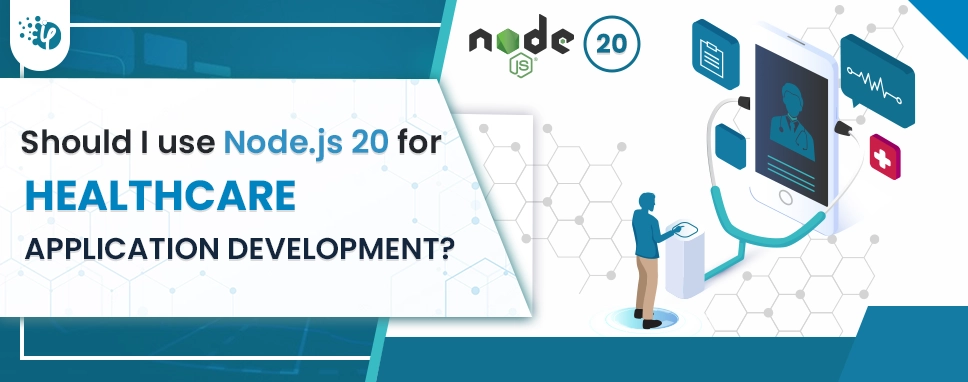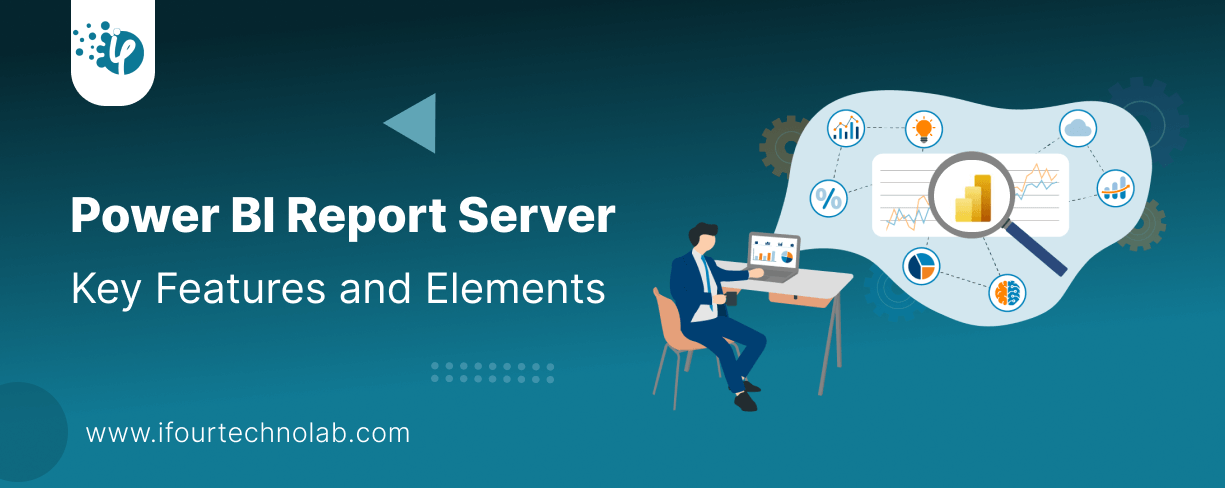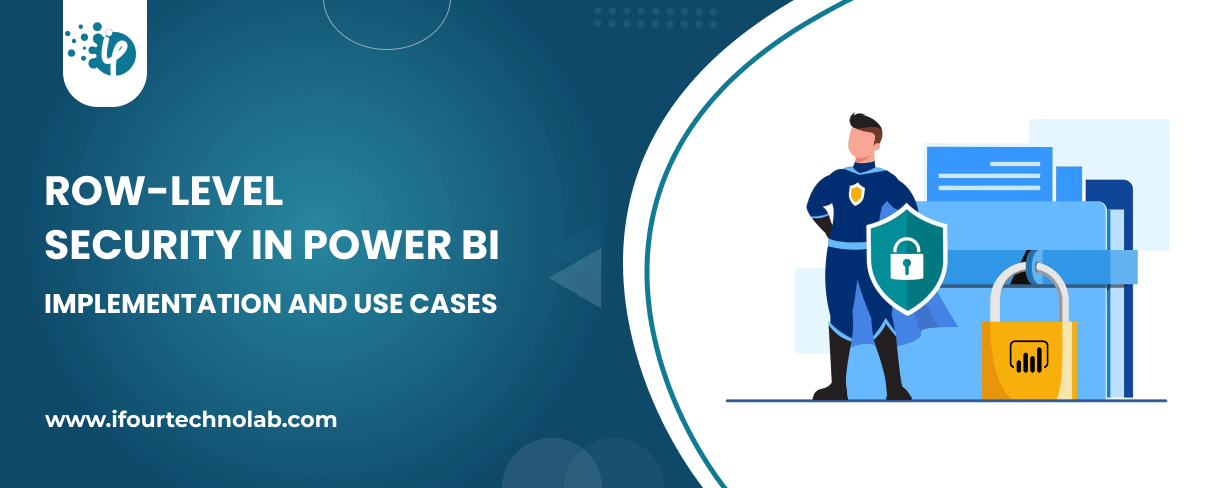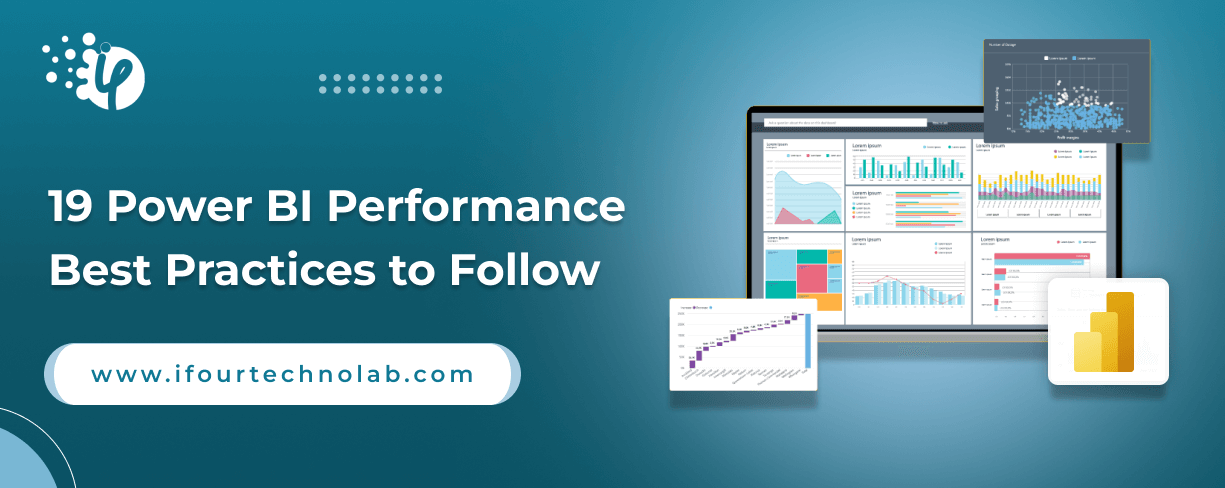Power BI Report Server: Key Features and Elements
Every CTO knows the struggle of managing complex reports. The inefficiency of scattered data, the constant juggling between reporting tools, the challenge of ensuring accurate KPIs...
Kapil Panchal - September 25, 2023
Listening is fun too.
Straighten your back and cherish with coffee - PLAY !

Node.js plays a pivotal role in innovation, reinventing healthcare processes and patient care impeccably with healthcare app development. It has been a top choice for professionals because of its ability to handle data quickly and effectively.
Node.js offers seamless features that simplify medical processes, and patient engagement effectively. Experts can easily manage patient data, diagnostic tools, communication platforms, and so on.
What makes it more interesting is its non-blocking, and event-driven architecture. You can manage several jobs at once without having to wait for one to be finished before beginning the next. In the context of healthcare, this translates to healthcare professionals having real-time access to patient records, updating critical information, and communicating with colleagues.
Node.js 20's scalability aligns perfectly with the dynamic nature of healthcare and the updated v8 JavaScript engine features make it more interesting. Healthcare facilities are constantly expanding, and Node.js 20 can effortlessly adapt to accommodate growing data volumes and user demands. This scalability ensures that healthcare applications remain responsive and dependable, even as they handle an increasing workload.
In essence, Node.js 20 is redefining healthcare apps by making them faster, more efficient, and scalable to meet the ever-evolving healthcare industry needs.
Healthcare software is at the forefront of patient care and administrative tasks, making it crucial for these applications to be both reliable and efficient. Node.js 20 stands out as a game-changer in healthcare software development due to its unique capabilities. What sets it apart is its non-blocking, event-driven architecture, which enables healthcare professionals to access and process patient data with remarkable speed and responsiveness.
One of the primary reasons why Node.js 20 is a game-changer in healthcare software is its ability to handle tasks parallelly. Healthcare applications often require simultaneous data processing, whether it's accessing patient records, conducting real-time monitoring, or managing communication between healthcare teams. Node.js 20's architecture allows these tasks to happen concurrently, enhancing the overall efficiency and responsiveness of healthcare software.
This is one of the main reasons why people go with Node.js application development for healthcare business.
Node.js 20's scalability aligns perfectly with the evolving demands of the healthcare industry. As medical facilities expand and the volume of patient data grows, healthcare software must adapt. Node.js 20 excels in this regard, effortlessly accommodating increased workloads and user demands without sacrificing performance. This scalability ensures that healthcare professionals can rely on their software to provide timely and accurate support, ultimately leading to improved patient care and administrative processes.
When it comes to healthcare application development, Node.js 20 offers a plethora of benefits that directly impact patient care and healthcare professionals' work processes. One of the standout advantages is its exceptional speed and efficiency. Healthcare applications built with Node.js 20 can process data rapidly, ensuring that healthcare professionals have quick access to critical patient information, test results, and diagnostic tools. This speed is instrumental in delivering timely care and decision-making.
Additionally, Node.js 20's non-blocking, event-driven architecture is a key asset in healthcare application development. It enables healthcare professionals to perform multiple tasks concurrently without delays, fostering efficient communication and collaboration among healthcare teams. Whether it's sharing patient data, coordinating treatment plans, or accessing medical records, Node.js 20 ensures that healthcare applications respond promptly.
The below figure helps you understand the benefits of Node.js in Healthcare apps development and why it has been preferred favorably.
Scalability is another significant benefit of Node.js 20. Healthcare facilities and their data requirements are continually expanding. Node.js 20's scalability allows healthcare applications to grow seamlessly, accommodating larger user bases and additional features. This ensures that healthcare professionals can rely on their applications to handle increasing data volumes and deliver consistent performance, ultimately enhancing their work processes and improving patient care.
In the healthcare software development world, the choice of technology can significantly impact the quality of patient care and the efficiency of healthcare professionals. Node.js 20, a modern and agile tool, has emerged as a formidable contender when compared to traditional tools. From a healthcare perspective, it offers a fresh approach that caters to the evolving needs of the industry. Node.js 20 differs from other tools in various ways:
Node.js 20, with its innate scalability, seamlessly adjusts to the expanding demands of healthcare applications. This ensures that healthcare professionals can rely on their software to handle the ever-growing volume of data while maintaining high-performance levels.
Node.js 20, with its robust features, offers healthcare professionals a powerful set of tools to streamline their work processes and enhance patient care. One of the standout features is its non-blocking, event-driven architecture. This architecture allows healthcare professionals to access patient data, update records, and communicate with colleagues in real time. The ability to perform multiple tasks simultaneously ensures that healthcare professionals can respond promptly to patient needs, improving overall care quality.
Additionally, Node.js 20's speed and efficiency are highly beneficial. Healthcare applications built with Node.js 20 can process data swiftly, enabling quick decision-making and access to critical information. Whether it's reviewing test results, coordinating treatment plans, or monitoring patient conditions, the speed of Node.js 20 enhances healthcare professionals' ability to deliver timely care.
Furthermore, Node.js 20's scalability is a valuable asset. Healthcare facilities are continually growing, generating vast amounts of patient data. Node.js 20's ability to scale effortlessly ensures that healthcare professionals can rely on their applications to handle increasing workloads without performance degradation. This scalability is essential for maintaining the efficiency and reliability of healthcare processes, ultimately benefiting both professionals and patients.
In the healthcare sector, both scalability and security are paramount concerns. Node.js 20 excels in addressing these critical aspects when developing healthcare applications. Its scalability ensures that healthcare professionals can rely on their software to accommodate expanding data volumes and user demands while maintaining optimal performance.
Moreover, Node.js 20 is renowned for its robust security features. In the healthcare industry, the protection of patient data is non-negotiable. Node.js 20 offers security measures that meet and often exceed industry standards. This includes a vibrant community that actively identifies and addresses vulnerabilities, ensuring that healthcare applications remain secure and compliant with data protection regulations.
The combination of scalability and security positions Node.js 20 as an ideal choice for healthcare application development. Scalability ensures that healthcare professionals can access and process growing volumes of patient data efficiently, while robust security measures safeguard sensitive information. Together, these features empower healthcare professionals to focus on providing exceptional patient care without compromising data integrity or application performance.
When developing healthcare applications, it's essential to consider a wide range of features to ensure they meet the needs of both healthcare professionals and patients while adhering to strict regulatory and security requirements. Here are some key features to consider:
Implement robust user authentication methods like multi-factor authentication (MFA) to secure patient data. Fine-grained access control ensures that only authorized personnel can access specific information.
Seamlessly integrate with EHR systems to provide healthcare professionals with instant access to patient records, medical histories, and treatment plans. This improves the efficiency of care delivery.
The rise of telehealth includes features that support virtual consultations, video conferencing, and secure messaging between patients and healthcare providers.
Allow patients to book appointments online, view availability, and receive reminders. Healthcare professionals should hire Node.js developers due to its unique capabilities. What sets it apart is its non-blocking, event-driven architecture, which enables healthcare professionals to access and process patient data with remarkable speed and responsiveness. to implement such features that offer scheduling tools and optimize their patient load.
Enable remote real-time monitoring of patient vital signs and health indicators. To provide prompt reactions to important changes, alerts, and notifications should be incorporated.
Provide medication reminders, dosage tracking, and drug interaction checks to improve patient adherence and safety.
Include secure messaging features to facilitate communication among healthcare teams, ensuring quick and accurate information exchange.
Offer data analytics tools for healthcare professionals to track patient outcomes, identify trends, and make informed decisions. Customizable reporting features are also valuable.
Create a patient portal for individuals to access their health records, and lab results, and communicate with their healthcare providers securely.
To safeguard patient privacy and data security, strictly adhere to the Health Insurance Portability and Accountability Act (HIPAA).
Develop applications that work seamlessly on various devices and platforms, including web browsers, mobile phones, and tablets.
Implement features that allow healthcare professionals to access critical patient information even in areas with limited connectivity.
Encrypt data at rest and in transit to protect patient records from unauthorized access and breaches.
Leverage AI and machine learning algorithms for tasks like predictive analytics, disease diagnosis, and personalized treatment recommendations.
Keep up to date with healthcare regulations such as the Health Insurance Portability and Accountability Act (HIPAA), General Data Protection Regulation (GDPR), and others relevant to your region.
Design the application to handle increasing data volumes, users, and features as the healthcare facility grows.
Add features that help patients in their healthcare journey, like educational content, health goal setting, and wellness tracking.
Streamline billing processes, such as the submission of insurance claims and the tracking of payments, to cut back on administrative costs.
To enable data synchronization and smooth monitoring, make sure diverse medical equipment are compatible with each other.
Use emergency alert systems in urgent circumstances, and rapidly advise patients and healthcare providers of essential information.
All these features are highly recommended for mobile app development. A single negligence among these could create a huge impact on the business.
In this article, we explored how Node.js 20 can be impactful for Healthcare application development and how it may adjust to the growing demands of healthcare clients. First, we looked into the pivotal role of Node.js 20 and its interesting features. We then peeked into the core reasons for using it. Next, we looked into the benefits of Node 20 and the key differences between Nodejs 20 and traditional tools.
Finally, we learned about scalability support, security features, and critical factors to consider while developing healthcare apps.

Every CTO knows the struggle of managing complex reports. The inefficiency of scattered data, the constant juggling between reporting tools, the challenge of ensuring accurate KPIs...

The very first reason why you should implement Row Level Security is to foster trust, a crucial element for any business's success. Next, it reduces data clutter and helps you load...

The performance of Power BI is significantly influenced by two essential factors: design consistency and the rapid loading of BI elements. This holds true whether you choose Tableau...